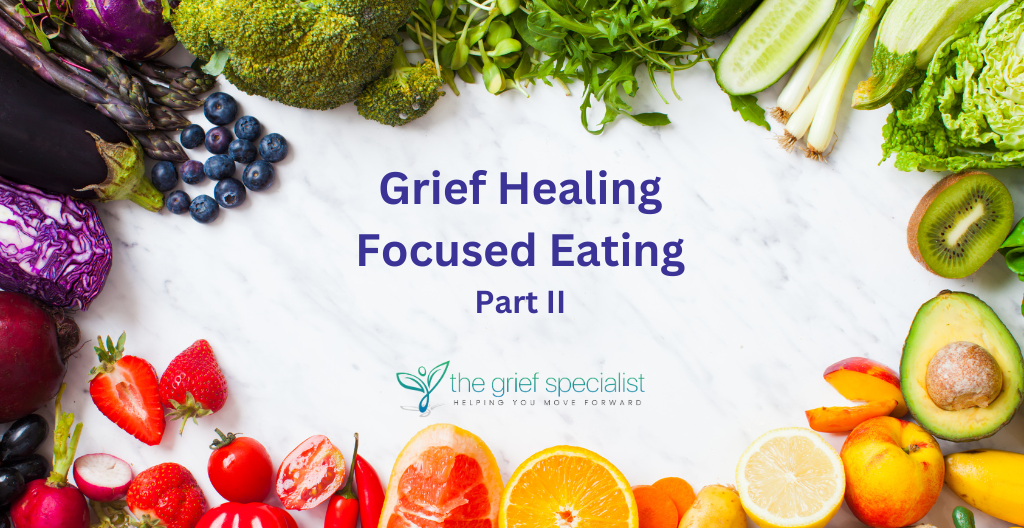PART II – Hydration
In Part I, Eat Real Food, you learned the importance of adding more fruits and vegetables to your diet. Processed foods have been attributed to grief brain, fatigue, anxiety, and difficulty sleeping. One way you can gain control over how you feel is by getting essential nutrients through real food. I use plant-powdered capsules to bridge the gap when I simply do not get enough.
This week you will focus on adding more water to your daily intake. You will learn how much to drink and some useful tips to drink more. I found that drinking water is so important to help with grief recovery. It is one of the easiest things to do to help yourself feel better.
Drink Water
Dehydration is a special danger for bereaved parents because the shock of your losses often leaves you stunned, powerless to focus on your needs, and without energy. You may also experience overall loss of motivation, general aches and pains, or headaches.
Your body is 60 percent water, and your organs use it to function properly. Your heart and brain both are 73 percent water, your skin is 64 percent water, and your bones are 31 percent water. It is no wonder that when your body is dehydrated your thinking is clouded and you cannot focus. In grief you may even feel that your heart is literally breaking. In the grief work I have done; I often hear the comment that people feel like they have aged ten years, or they often have difficulty breathing. This is your body, your organs crying out, they need attention and desperately need water. When you do not replenish what you use, your organs can shut down.
You also need water to detoxify your body and flush out the toxins that accumulate from stress and anxiety. During stress you produce extra toxins that can stay in your system. The only way to get rid of them is to drink water. And I mean water. Coffee, tea, sodas, or alcohol do not replace water.
It is recommended to drink one-half of your body weight in ounces of water. In your grief, that is the minimum to get on a daily basis.
Calculate how much water you should be drinking every day. Here is an example: If you weigh 120 pounds, divide 120 by 2, which is 60. This means your body requires 60 ounces, at a minimum, to stay hydrated, functioning, and helping with your grief. Consider having a water bottle or glass with you at all times. This will make it easier to drink because it is within arm’s reach. I carry a water bottle in the car and take a sip at stoplights.
When you are at work, set a timer on your phone for every 30 minutes. When the timer rings, drink water.
I also find it more enjoyable to drink from a nice glass or a fun water bottle. I use one that says, “Life on Fire”. It reminds me of my newfound purpose since my son passed away. I get to share my grief recovery insights with you! Now is the time to focus on your health and drink more water. It is an easy place to start.
A common reaction is, “Whoa, that is a lot of water, and I will be spending my days in the restroom. I do not have time for that.” You are correct; initially you will be using the restroom frequently. Think of your body as a bone-dry sponge. If you pour a lot of water on a dried-up sponge, most of the water will run right off. As you continue to add more water, the sponge will retain more and more water. You are like that! Your body will get used to having more water and the need to use the restroom will diminish.
Now, calculate your water-drinking goal. Your body weight in pounds = ____ /2 = ____ ounces of water to drink daily. Set this amount as a goal to drink every day. Write it down here so you remember. My water intake goal is ______ ounces every day.
Look for increased energy, healthier-looking skin, and clearer thinking as you add more water to your daily routine.
#hydration
#griefbrain
#energy
#nutrition
#helpyoumovedforward




